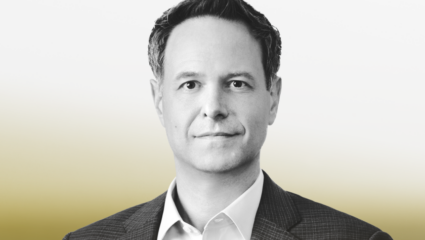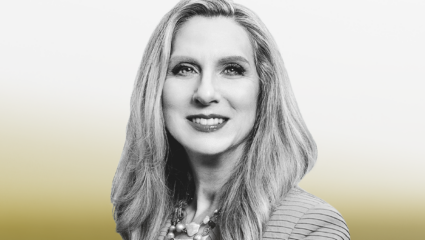
For a few private equity firms, the car wash business is old hat.
It was around the dawn of the 21st century when U.K. sponsor Bridgepoint Capital Ltd. paid about £115 million ($157 million) for International Car Wash Group Ltd. Since then, JPMorgan Partners (now CCMP Capital Advisors LP); Carlyle Group Inc. (CG); TDR Capital LLP; and, most recently, Atlanta-based Roark Capital Management LLC have held ICWG.
Until the past three years, however, car wash chains have not been a heavily traded business among private equity firms. As recently as June 2019, private equity owned about 1% of the nation’s 65,000 total car washes and 2% of the country’s roughly 17,000 conveyor-style car washes, according to data from one of the industry’s dedicated brokerages, New York-based Car Wash Advisory LLC.
In the next five years, some industry advisers expect that to change.
“We’re nearing the basket tipping point, but there is still a ton of runway to go,” BlackArch Partners LP managing director John Conklin said. “If I think about car wash operators with some sort of private equity backing in this space five or so years ago, I’d say there were no more than 10. Now I’d say there’s probably 50.”
In some ways, the car wash business may end up shaking out over the next 10 to 20 years much like the fast food industry did in the mid-twentieth century, said Conklin, who sold Mister Car Wash Holdings Inc., the largest conveyor-style car wash operator in the U.S. with around 330 locations, to Leonard Green Partners LP in 2014.
“The fast food industry took about 50 years to consolidate, but you know today who the top players are,” he opined. “That has not been decided in the car wash market, but it’s just about to start.”
Changing the Game
Cornering an underexploited market explains why the few early movers entered the car wash arena — having eyes on building nationally recognized brands with hundreds of car wash locations across the country.
There is also good reason PE waited so long to fully commit.
Car washes were for a long time primarily a cash-heavy, labor-intensive model in which consumers begrudgingly participated and that could be avoided altogether any time a heavy month of rain set in.
Today, it has transformed into exactly the type of business investors salivate over.
“Everything about the way this industry operates has changed,” said Jeff Pavone, founder of another boutique car wash adviser, CP Capital Advisory Services LLC. “Whatever growth we’ve seen in the past few years will be quadrupled over the next couple years.”
There are two primary drivers to the revolution: advancing technology that has transformed once-prehistoric car washes into scalable businesses and new sales and marketing models that create recurring revenue for car washes and allow them to build a brand.
“There was no car wash M&A for a long time,” Pavone explained. “Most of these companies were regionally focused mom-and-pops that built a business around relationships. But over the last few years, this industry has figured out how to scale.”
The focus was once on full-service car washes, where a driver would wait 45 minutes to have their car washed and detailed. Tech drove the boom of the conveyor-style express car wash, in which drivers were in and out in five minutes, having never left their car.
But the revolution was not complete without a transformation of the business model to allow for recurring revenue. Subscription services priced between $15 and $40 per month for unlimited washes are now the go-to form of doing business. And coupling the subscription platform with scale activates the full potential of that model.
Witness the 36 car washes family-owned operator Crew Carwash handles in the Indianapolis metropolitan area. The company does millions of car washes per year and dominates the region so well they’re able to control pricing, Pavone said.
“If you’re a consumer, what are you going to go for — the monthly membership where you can access 30 locations within a single market or one where you’ve got access to maybe two or three car washes in the area?” he said. “A lot of these mom-and-pops are just not going to be able to compete with that.”
The Floodgates Open
After Leonard Green picked up Mister Car Wash in 2014 and Phoenix-based Clear Sky Capital Inc. acquired Raceway Express Car Wash in 2016, 2018 saw TPG Capital LP-backed Wildcat Capital Management LLC purchase Etna, Ohio-based Express Wash Concepts; Red Dog Equity LLC partnered with Chicago-based Pritzker Organization LLC to acquire Atlanta-based Mammoth Holdings LLC; and Palladin Consumer Retail Partners added Greenwich, Conn.-based Splash Car Wash.
Private equity buyers have fallen into one of a few groups, according to Conklin: multi-unit retail firms such as Roark; firms with experience in the automotive-aftermarket industry such as Golden Gate Capital LP; and membership-focused consumer services firms such as Atlantic Street Capital Management LLC. The latter acquired the country’s third largest conveyor-style car wash operator, Zips Car Wash, in May.
The industry also has attracted real estate investors. Witness real estate development company Hutton Co. LLC’s investment in ModWash LLC, a Chattanooga, Tenn.-based car wash operator aiming to build 100 locations across the Southeast and Northeast by 2023.
Despite this ramp in activity, car wash M&A is still largely playing out at the brokerage and boutique bank levels.
By Pavone’s estimates, about 80% of car wash M&A remains in the $25 million to $100 million range. A single, well-run express car wash location can generate about $1 million of Ebitdar, or Ebitda plus rent, on $2 million in annual revenue, he estimated. Less well-run locations may produce closer to $500,000 in Ebitdar on around $1 million in revenue.
In some recent car wash deals, Pavone is seeing PE firms and other investors pay 10 to 12 times Ebitdar and up.
In these cases, he said the purchases were for companies that have the “secret sauce,” which includes an already sizable footprint of locations and a recurring revenue-based model, as well as a recognizable brand with the corporate infrastructure in place to grow the brand.
So far, there are just of handful of companies that meet that description.
On Dec. 30, San Francisco’s Golden Gate agreed to buy Tidal Wave Auto Spa in a deal that gave the company an enterprise value of $950 million, sources familiar with the matter told The Deal. Tidal Wave is a brand with the secret sauce, and there are barely a few other large regional chains that match it, Pavone said.
Diamond in the Rough
In 2021, a single location that produces $1 million in Ebitdar on $2 million in revenue is a rarity, and a business where that is the average across dozens of locations would be considered a unicorn, Conklin cautioned. The bulk of the best-run express car wash chains are likely producing closer to $1.5 million in revenue per location on average, he said.
“If you have 150 locations producing $1.5 million in annual revenue on average, you’re in the top decile of car wash operators,” Conklin said. “If you’re generating $2 million per location on average, you’re best in class. That may exist in certain sites, but I don’t believe that exists today across an entire business.”
The companies that can produce these numbers and demonstrate a path to growth without compromising financials are few and far between. These are the businesses attracting private equity suitors today, Conklin posited. Companies fitting this mold that have rapidly expanded over the past 10 years have started to trade in the $100 million to $400 million range over the past two to three years.
Meanwhile, the group of express car wash operators that have built enough scale to find themselves in the running for national brand recognition — the future Mcdonald’s, Wendy’s and Starbucks of the car wash industry — is tiny.
It includes Mister Car Wash, with more than 335 conveyor-style locations; International Car Wash Group, with more than 220 U.S. locations; and Zips Car Wash, with more than 200 locations. Roseville, Calif.-based Quick Quack Car Wash and Charlotte-based Autobell Car Wash round out the top of the pack with roughly 115 and 85 locations, respectively.
Outside of these rare operators, though, the industry remains extremely fragmented. The top 10 express location operators own less than 8% of the total market, Conklin said.
Murky Waters Ahead
While the youth of the express conveyor, subscription-based model is a big factor in the fragmentation — emerging over the past 10 years within an industry that has been around for decades. Another issue has been a lack of a defined end game for institutional dollars in the industry.
PE-backed platforms with aggressive bolt-on strategies, such as Mammoth Holdings, may have some success putting 10 car wash chains together to build a business with $50 million in Ebitdar and flipping it to a larger sponsor for a profit.
But that move has backfired before.
In Carlyle’s 2006 purchase of ICWG from JPMorgan Partners for £450 million, the firm had eye toward expansion in Europe. Carlyle used debt to partially pay for ICWG. When the financial crisis struck, the firm put more debt on the company’s balance sheet to stave off what would prove to be the inevitable. In 2009, ICWG was forced to restructure in a case that saw all equity and junior debt stakes wiped out as the court ruled the value of the business was only £265 million.
In 2021, as renewed private equity demand pushes multiples up in the car wash industry, aggressive roll-up bets will become costlier.
Already, the traditional strategic buyers in this space — Mister Car Wash and ICWG — are seeing much higher costs of a buy-and-build strategy, Conklin pointed out.
And some of these large traditional buyers are becoming long-in-the-tooth investments for their sponsors.
For these operators, Roark recently provided a potential exit benchmark. Roark combined ICWG with Meineke Car Care Centers and Maaco owner Driven Brands Holdings Inc. (DRVN) in August and sold about 30% of the combined company earlier this month in a $700 million IPO on the Nasdaq.
Considering Driven Brands lumps its car wash unit into its maintenance segment, which generated $356 million in sales in 2019 but also includes its oil change and other automotive service businesses, it’s impossible to draw a straight line between car washes and the company’s $5 billion market capitalization.
Nevertheless, an IPO represents one likely solution for sponsors in the near-term, and some of ICWG’s top competitors may follow suit as soon as this year.
For those operators not patient enough to wait for IPO investors to determine their industry’s value, 2020 may have provided an opening to alternative exit methods.
Pavone said his firm is having conversations with clients about mergers with so-called blank check companies on the heels of the special purpose acquisition company, or SPAC, market explosion in 2020.
“When you’re looking at private market valuations of 10 to 12 times, and you think you can get 17 times in the public markets, it makes it worth looking at the SPAC market for sure,” he said. “There are a handful of these operators looking to get big very fast. For those folks, this may be the route to take.”
Editor’s note: The original version of this article was published earlier on The Deal’s premium subscription website. For access, log in to TheDeal.com or use the form below to request a free trial.
This Content is Only for The Deal Subscribers
If you’re already a subscriber, log in to view this article here.



